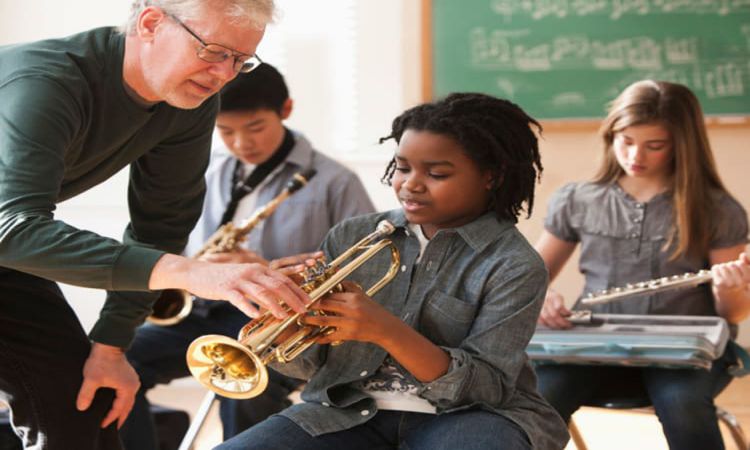 Music is an art form that has been with us since the time of ancient civilizations. It definitely affects our minds and emotions as it also touches our bodies. Music offers something for everyone; we can be happy when listening to pop or rap, or sad and melancholy to country music. Music education in schools is critical because it teaches students communication skills, discipline, responsibility, teamwork within the classroom, and empathy for others, ultimately giving them the tools for success.
Music is an art form that has been with us since the time of ancient civilizations. It definitely affects our minds and emotions as it also touches our bodies. Music offers something for everyone; we can be happy when listening to pop or rap, or sad and melancholy to country music. Music education in schools is critical because it teaches students communication skills, discipline, responsibility, teamwork within the classroom, and empathy for others, ultimately giving them the tools for success.
Music education in schools provides entertainment and helps bridge gaps between different cultures through artists from all over the world connecting through their talents and love of music.
-
Table of Contents
Impact of music education on students:
Music helps students develop their communication, analytical thinking, and problem-solving skills. Music teaches that anything can be accomplished when there is a common purpose. Through music, children learn to work together as a team and understand their peers on a higher level.
Music education helps students learn discipline and responsibility since they have to practice scales and other musical skills daily to produce sounds of expertise with the violin or flute. They must also perform on stage or in front of their peers in concerts or marching bands which fosters confidence.
-
Social benefits of music education:
A music class is a perfect environment for students to express their individuality without judgment or criticism but rather acceptance and love for one another. Music students learn to work with peers from different cultures, races, and religions. You can also visit Joe’s Academy of Music of St Albans to get reliable service at affordable prices.
Music education also helps to foster social empathy because it teaches respect for others within the same group. When in a band, kids must play their part for the song to sound great. They also must listen very carefully, knowing when it is time to play their instrument and practice as a team. Everyone plays their part for the song to sound great, ultimately accomplishing something bigger than them.
-
Other benefits of music education:
A significant benefit of music education is that it helps students to “connect” with their peers. Students can make friends that last a lifetime, whether they are performing in front of an audience or just a group of friends playing instruments at home. In addition, children who play musical instruments or sing have many benefits:
- Students learn to perform for others, which instills confidence and allows them to focus on their own “self.” They may be the show’s star and gain confidence in themselves from this.
- To perform makes people feel happy. And music has a wide variety of emotions, which makes people feel all kinds of things; love, sadness, happiness, and more.
- Students who play instruments or learn to sing again have different skills than those who only take the music theory class. Playing an instrument or singing gives students memory, reading, and learning skills that will benefit them throughout their lives.
- Improvement of motor skills which are beneficial in all sports and physical activities as well as in daily life
- Advanced cognitive and social development for children of all ages
- Music education allows creativity to be expressed in various forms such as art, movement, design, etc.
Conclusion:
Music education in schools is essential because it helps students learn how to work and play together as a team and express themselves through their unique talents.






